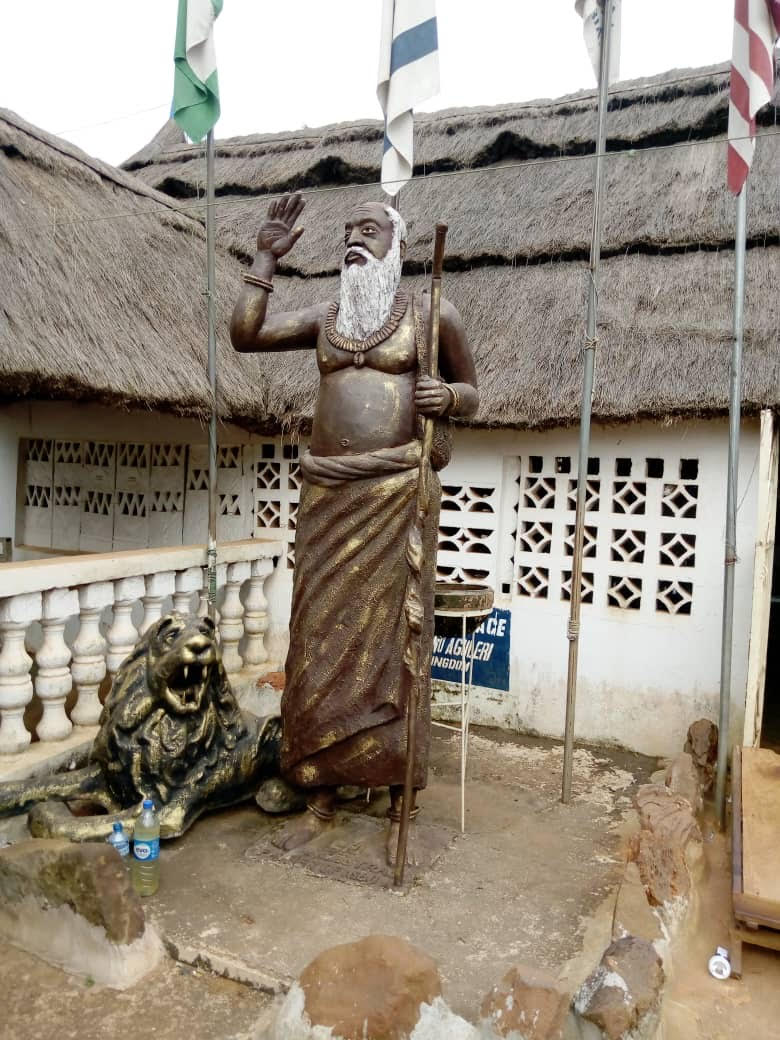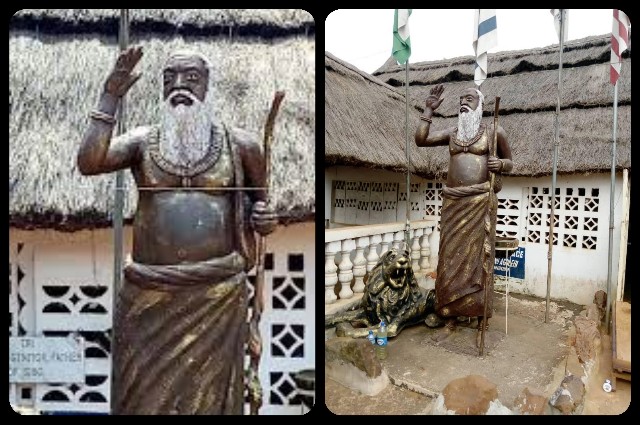According to Igbo folklore, the Eri people trace their ancestry to Eri, a divine figure who was sent from heaven to establish civilization. Eri’s father, Gad, was one of the sons of Jacob and a concubine mentioned in the Bible.
Legend has it that Eri served as a high priest in Egypt during the reign of Joseph. Upon foreseeing the enslavement of his people, he fled Egypt and journeyed through the Nile River, Benue River, and eventually settled near the confluence of the Niger River. There, with the people he gathered, he founded a settlement and had a son named Nri, who possessed the same priestly ordination and spiritual powers as his father. Nri eventually established his own place, which is now known as Nri in Anambra state, Nigeria. Eri went on to have four other sons and a daughter.

There is a notable ongoing debate about the origin of the Igbo people between the Nri and Aguleri communities. One perspective suggests that Aguleri, as Eri’s first son, migrated from Egypt alongside him and thus should be regarded as the original progenitor of the Igbo people. However, an opposing viewpoint asserts that because Aguleri was not born in the new settlement but rather in Egypt, Nri, who inherited his father’s priestly attributes, is the rightful originator of the Igbo race.
The tradition among the Igbo people is that an Aguleri man must be the one to break a kolanut at a gathering, even amid the ongoing debate over the origin of the Igbos. Additionally, before a king can be crowned, he must first visit Aguleri to undergo a seven-day ritual and receive blessings.
Following the passing of Eri, his first son Agulu, who later became known as Aguleri, took over the land and the population multiplied, leading to the formation of more communities. Upon hearing of his father’s demise, Nri returned to Aguleri and stayed for an extended period, ultimately requesting to be buried there before his own death. Prior to passing away, Nri established a kingdom believed to have been founded due to the mystical abilities passed down to him from his father.

The Nri kingdom prospered and expanded over time, with its capital at Igboukwu. The people experienced rapid development, which enabled them to establish their own currency and banking systems. The Nri economy was largely based on agriculture and trade in hunting games.
The kingdom also became a sanctuary for runaway slaves, and outcasts (osu) were accepted into their society. Although the Nri people did not hold dominion over all Igbo lands, their influence was significant, and many cultural and traditional activities were centered in Nri.
The leadership in Nri was characterized by the absence of dictatorship. The king’s role was to manage trade routes, diplomacy, and to have authority over religious affairs. Becoming a king was not limited to the descendants of Nri but was determined through divine selection. However, the chosen one had to undergo rituals to prove their worthiness to Chineke, the creator of the universe. They had to be from Eri, their mother would die within a few days or weeks after their birth, and they must not have a living father. The ritual involved a symbolic celebration of the king’s death, representing their transition to belonging to the spirits and the people. Finally, the chosen king had to visit Aguleri before their coronation.
The Ancient Iduu Cultural festival (Olili Obibia Eri) is held annually to celebrate the arrival of Eri at the Agbanagbo-Ezu-na-Omambala (confluence of Ezu and Omabala rivers). This festival was initiated by Eri and continues to be celebrated to this day.
